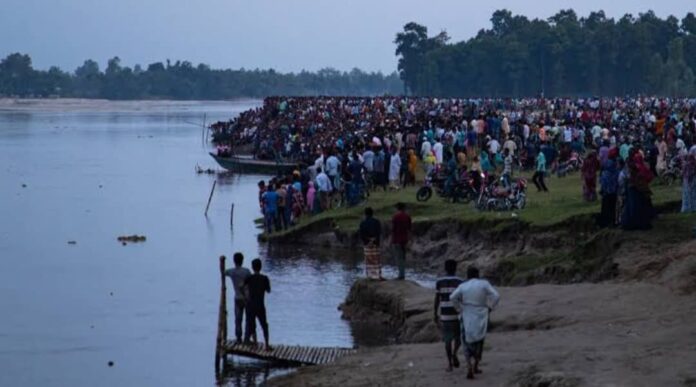When rivers turn into cemeteries, by Musa Baba Alhaji
Boat accidents in Nigeria have become unbearably frequent, turning rivers and waterways into silent cemeteries. Each tragedy wastes precious lives and leaves families to grieve themselves into fragile consolation, while the government at all levels does nothing beyond keeping half-baked records. These are not acts of God but predictable, preventable disasters, born of neglect, poverty, and bad governance. For a decade now, Nigerians across both North and South have been dying in their hundreds, yet no meaningful safety policies exist, no proper registry of casualties is kept, and the cycle of loss continues unbroken.
Between 2015 and August 2025 alone, over 275 lives have been confirmed lost in reported boat mishaps, with dozens more missing. In Kebbi, 2021, over 60 drowned in a single incident. In Anambra, 2022, 76 people died when a flood-swollen boat capsized. In Niger State, 2023, at least 28 perished. Just last Friday in Zamfara, 15 villagers fleeing bandits drowned, while others remain unaccounted for. Even the famous have not been spared, Nollywood actor Junior Pope Odonwodo lost his life in Anambra last year.
READ ALSO: Lawmaker renovates 80 cemeteries as constituency project
Yet, these deaths are not treated as a national emergency. There is no single public registry for inland-waterway casualties. The government’s half-baked data forces citizens to rely on scattered media reports. In reality, the toll is far higher, especially in rural communities where women and children, on their way to markets or farms, make up the majority of victims.
The causes are obvious: insecurity pushing families onto rivers, climate change swelling waterways, poverty forcing traders into unsafe boats, illiteracy reducing awareness of safety practices, and corruption or negligence allowing operators to flout passenger limits. From Lagos Lagoon to Sokoto’s rivers, from Bayelsa creeks to Niger’s floodplains, the story is the same: watery graves, grieving families, absent government.
So what do we do? First, Nigeria needs a national registry of boat accidents. Without data, there can be no accountability. Second, our leaders must enforce life jacket use, limit passenger loads, and regulate water transport as strictly as road and air. Third, Imams and Pastors should join in sensitising communities, safety is a moral duty as much as a technical one. Fourth, the federal and state governments must see inland waterways not as death traps but as opportunities for transport, trade, and revenue generation. With investment, these tragedies can be turned into economic growth.
READ ALSO: The 2009 ASUU Agreement: A mirror of government failure, by Dr. Tukur Madu Yemi
Above all, leaders must confront the cruel irony of these deaths: the very poor who lack clean water to drink are perishing in its unclean abundance. Until we act, our rivers will remain silent cemeteries.
Musa Baba Alhaji, MSc. student, Water Resources and Environmental Engineering, Bayero University, Kano.
Follow the Neptune Prime channel on WhatsApp:
Do you have breaking news, interview request, opinion, suggestion, or want your event covered? Email us at neptuneprime2233@gmail.com





